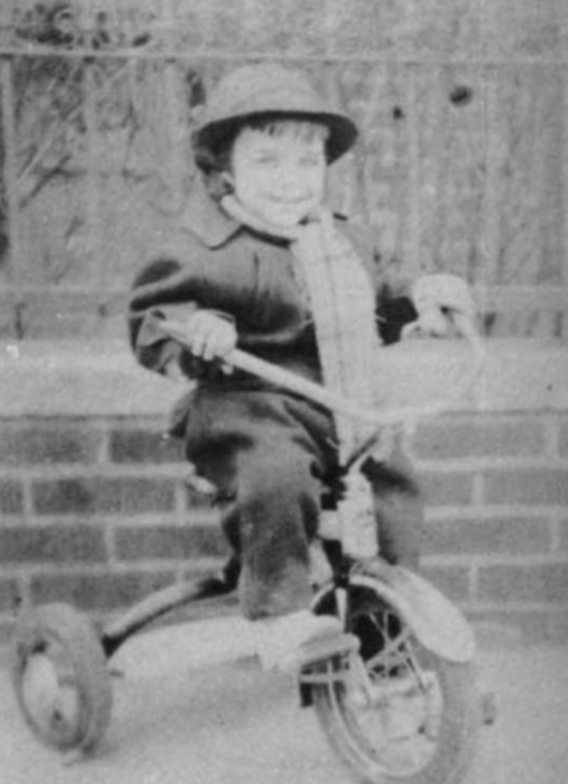How I Started My Business Career Early
I learned risk early in my life.
My father worked hard to build up his own business, taking risks and building a network, eventually moving our family to Kenmore, a nice suburb of Buffalo, NY. A month into my fourth-grade year, a fire tore through my father’s warehouse, bankrupting his company overnight and forcing my family to uproot and move to an apartment back in Buffalo. That fire took away my safe and secure childhood in Kenmore and my life was taking another course; it would be forever different.
I launched my first entrepreneurial venture while living in Buffalo, hoping to raise a little bit of spending money.
Raking up Business
In October, I offered to rake neighbors’ leaves. I managed five or six houses by myself throughout the week, working on a house or two at a time. As winter approached, I phased into shoveling snow for neighbors. However, unlike leaves, you needed to remove snow instantly and I could no longer handle the work alone. Because I was great at landing the work and negotiating a favorable price, I started recruiting neighborhood boys to help for a percentage of the money.
The system worked pretty well, because many of my friends were too shy to ask for the work, while I loved trying to persuade the neighbors to hire us. By the third snowstorm, we increased our houses to ten. Had my family remained in Buffalo, we probably would have ended up with full-blown snow-removal business that rivaled the city’s crew—at least we thought so. This enterprise taught me that it was important to hire a good team. I also learned to play to my strengths. While I couldn’t do all the heavy lifting alone, I was good at marketing and building a customer base.
Moving to Retail
My first foray into the retail followed a similar trajectory. When I was eleven, I wanted a Tru-Action Electric Football Game that Norman Sas invented in 1947. Tudor Metal Products and Tudor Games was one of the first companies to make a profit in the electronic games business. One played the football game on a vibrating metal field modeled on an electric car race game that the company sold. The vibration helped move miniature plastic players down the field. It was an instant hit, and every boy in America seemed to want one. It was the 1950s, long before video games were invented, and it seemed like the coolest game around. Electric Football game cost about five dollars, which was a fortune for a toy.
Raising the Funds
I told my parents about the game, and they said that if I earned the money, I could buy it. Raking leaves and shoveling snow depended on the seasons, so now I needed a plan for the warm-weather months. After thinking about it for a few days, I realized there were some old toys, books and household items in our garage that nobody seemed to be using. Then, I launched my career in retail.
I set up two small tables outside our detached garage and created a sidewalk sale. I began to draw a crowd, as I sold things for spare change—a risk I decided to take. Even some of my best items went for a quarter. It was not long before I had sold out of almost all of my merchandise. When I counted the change, I realized I only had a little more than three dollars. I was so excited about my new venture that I had not given my approach much thought. I knew how much money I needed to buy the football game, but I had not considered how much merchandise I needed to sell or what prices I needed to set to reach that goal.
Competition Grew
In the meantime, several of my friends in the neighborhood saw what I was doing and set up their own sidewalk stores. Pretty soon there were five of them on my block. I had run out of merchandise, and now I had plenty of competition. I took an entrepreneurial risk, had a minor setback and needed a new plan. I took my red wagon and went to see what my neighbors were doing. One boy was selling the same kind of toys as me, but his items were newer and in better shape. I looked over what he had for sale and quickly figured that, with the three dollars I had earned, I could buy all of his merchandise. If I resold the items for higher prices, I could make more money. I offered the boy two dollars for everything, and he happily accepted.
Lessons Learned
I did not realize then that I had learned two valuable lessons that day. The first: Do not start a business without a clear goal in mind and a plan for how to reach it. That is as important for a kid’s sidewalk store as it is for a Fortune 500 company. The second lesson was that I had over-paid for my first buyout. I had a lot to learn about the art of negotiation. Even so, my efforts paid off, and I did get the electric football game.
More important, though, my career in business had begun.
